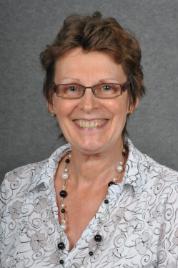Sowing seeds of resilience for future rural occupational therapists
Published on 24 January, 2012
Rural occupational therapy (OT) practice can be challenging with large diverse caseloads, the generalist nature of practice, vast distances to travel, a lack of referral agency and equipment resources, and limited access to professional support.
Apart from the potential for 'burn out', if rural practice is not considered an attractive option, there may be unfilled OT vacancies and ultimately a lack of adequate health service provision for rural communities.

New Discipline Leader for Occupational Therapy, Associate Professor Patricia WielandtHowever, it is possible for therapists to avoid ‘burn out' when working in rural communities by sowing the seeds of resilience during their OT training. Additionally, the emergence of new technologies such as telehealth can help maintain professional links while reducing the need for long-distance travel to remote communities.
That's according to CQUniversity's new co-Discipline Lead for Occupational Therapy, Associate Professor Patricia Wielandt who is keen to ensure her students can embrace rural practice by the time they enter the workforce.
"Retention of rural and remote allied health workers in Australia has been an issue for many years but new innovations in OT education are changing this," she says.
"The new OT program wants to 'home-grow' their graduates for OT practice in the Central Queensland region (urban and especially rural) and that means having a curriculum that highlights the characteristics of the population they will be working with, as well as knowledge about the regions' industries (mining, agriculture and fisheries).
"Adequately preparing graduates for the realities of rural practice obviously involves discipline-specific theory and practice skills, but also there needs to be strategic fieldwork experiences, knowledge about developing skills for building social capital and maximizing community support networks. These are all building blocks for a rewarding career in rural occupational therapy practice."
After a career as a practitioner and academic in Australia, Assoc Prof Wielandt recently spent five years training OT Masters students for practice in Alberta and Saskatchewan, Canada. Whilst employed at the University of Alberta, Edmonton, she conducted research surrounding preparedness for rural OT practice in Alberta (2007), the actual nature of rural OT practice in prairie provinces (2007), the rewards and challenges of rural OT practice in Saskatchewan (2009) and developing resilience in order to survive as a sole rural OT practitioner (2010). The findings from these studies were used by the Saskatchewan health authorities when developing an application for their own OT program this past year.
Planning a fresh role with CQUniversity, Assoc Prof Wielandt says her research will include a study to identify the factors that facilitate the development of resilience in local rural OTs. She says this is an exciting time developing a new rural OT school to address the imbalance in the region with regards to allied health care provision.

